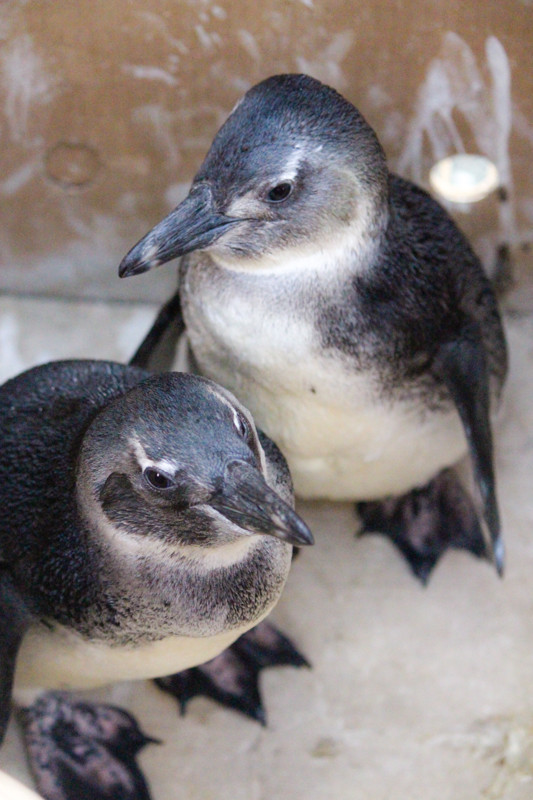Overfishing and climate change trapping African penguin in population spiral
The clues the penguins use to find food are no longer fitting in warmer, over-fished seas.
Overfishing and climate change are leading African penguins astray as they search for food, leading the birds into an 'ecological trap' that is speeding up their population decline.
A total of 54 juvenile African penguins from eight colonies on the Namibian coast were tagged with satellite trackers to monitor their movements as they swam through an area known as the Benguela ecosystem, a large area spanning the coastlines of Namibia and South Africa.
Outdated hunting style
Young African penguins look for food in areas of low sea temperatures and high levels of a molecule called chlorophyll-a, one of the main compounds that makes most plants green. High levels of chlorophyll-a are usually a marker of the presence of plankton and of the fish that feed on it.
"These were once reliable cues for prey-rich waters, but climate change and industrial fishing have depleted forage fish stocks in this system," said study author Richard Sherley of the University of Exeter in a statement. Relying on these cues is now putting African penguins in danger.
Overfishing off the coast of Namibia and the effects of commercial fishing near South Africa have significantly reduced the numbers of fish in the Benguela ecosystem. Climate change is also affecting the fish's migration, as they tend to move further to the south and east around the coast of South Africa.
"The penguins still move to where the plankton are abundant, but the fish are no longer there," Sherley said. "In particular, sardines in Namibia have been replaced in the ecosystem by lower-energy fish and jellyfish."
Out of the trap
African penguins are undergoing a very rapid population decline with no sign of reversing, according to the International Union for Conservation of Nature, which lists the penguins as an endangered species.

There are several potential ways out of the ecological trap for penguins, the study authors say, including relocating chicks to new breeding sites in South Africa, where penguins do not appear to be caught in a similar ecological trap yet.
"If you could convince adults that the new colony was their 'home', then it would be best to relocate adults as they have the highest survival rates. However, the fidelity to breeding site is very strong in this species, so it would be difficult to move birds that have already bred," Sherley said. "The most likely age group to [successfully] move is juveniles; they still have to choose a breeding site and this may not necessarily be where came from. Moving them to a new site with good breeding habitat, decoys (fake penguin models) and playbacks of penguin calls might be enough to convince them to make that new site their home."
However, other areas may soon fall prey to the same traps due to climate change, the authors say. Other options include reducing or blocking fishing in particular areas of sea in the Benguela area to boost sardine and anchovy levels. Only enforcing a fishing suspension when fish populations fall below "critical ecological thresholds" would lead to minimal losses to fisheries, the authors say.
The research is published in the journal Current Biology.
© Copyright IBTimes 2025. All rights reserved.






















